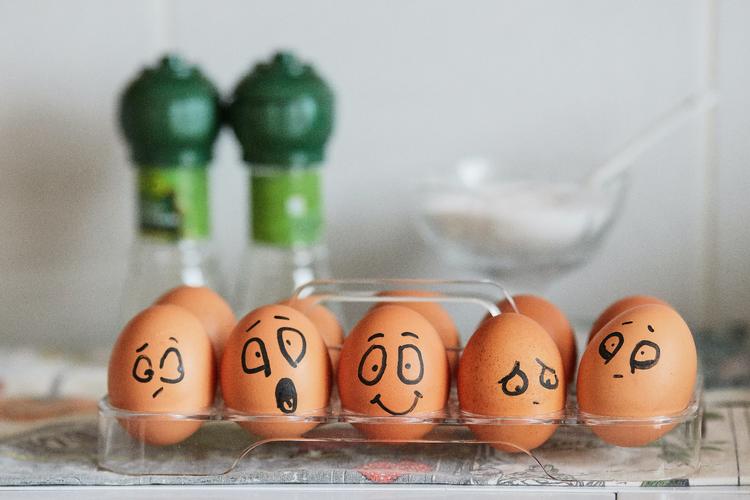Blog
Assessments
STAI: State-Trait Anxiety Inventory for Adults
Charles Spielberger, R.L. Gorsuch, and R.E. Lushene developed the State-Trait Anxiety Inventory (STAI). They wanted a series of questions that would help to distinguish the difference between temporary anxiety, often referred to as "state anxiety," and the enduring kind of anxiety referred to as "trait anxiety."(Spielberger, Gorsuch, Lushene, Vagg, & Jacobs, 1983)
The inventory is 40 multiple-choice questions. Each question can be answered with: almost never, sometimes, often, or almost always. T…
The inventory is 40 multiple-choice questions. Each question can be answered with: almost never, sometimes, often, or almost always. T…
Holmes & Rahe Stress Scale
The Holmes & Rahe assessment is a collection of questions about stressful life events. It was created in 1967 to measure the connection between stress and illness. There is a total of 1467 points for all 43 questions.
Please note that while there is good evidence that chronic stress can lead to ill health, there is not much evidence to support the *ranking* of stressful life events in this manner. Even though this assessment isn't perfect (doesn't leave a lot of room for "grey areas"), this stres…
Please note that while there is good evidence that chronic stress can lead to ill health, there is not much evidence to support the *ranking* of stressful life events in this manner. Even though this assessment isn't perfect (doesn't leave a lot of room for "grey areas"), this stres…
ProQOL Assessment: Professional Quality of Life
The ProQOL is a self-administered assessment with 30 questions total, for understanding your balance of positive and negative personal and work experiences. The tool was originally created by Beth Hudnall Stamm, Ph.D.
"It is intended for any helper - health care professionals, social service workers, teachers, attorneys, emergency response, etc. Understanding the positive and negative aspects of helping those who experience trauma and suffering can improve your ability to help them and your abil…
"It is intended for any helper - health care professionals, social service workers, teachers, attorneys, emergency response, etc. Understanding the positive and negative aspects of helping those who experience trauma and suffering can improve your ability to help them and your abil…
IAT: Implicit Association Tests
Implicit bias is unintentional and automatic. It affects us more than we realize. It's not abnormal to be shocked or embarrassed by the results of these 15 Implicit Association Tests. Please remember that the results do not define you, but they can empower you with better decision-making skills. This is why I highly recommend that everyone take these tests, especially my clients and other trauma survivors.
The IAT tests are offered by Harvard University and the results benefit research conducted…
The IAT tests are offered by Harvard University and the results benefit research conducted…
MAIA: Multidimensional Assessment of Interoceptive Awareness
Interoception is the ability to identify, access, understand, and respond to the patterns and signals inside your body. This can happen consciously or unconsciously AND for many, it's a skill that can be learned and/or improved.
The MAIA assessment is one of many ways to track the progress of trauma resilience-building skills.
This questionnaire was funded by the National Institute of Health (NCCAM/NCCIH) and is available in the public domain. (Hooray for freely sharing healthcare & science!) A go…
The MAIA assessment is one of many ways to track the progress of trauma resilience-building skills.
This questionnaire was funded by the National Institute of Health (NCCAM/NCCIH) and is available in the public domain. (Hooray for freely sharing healthcare & science!) A go…
BDI-II: Beck Depression Inventory
Depression is extremely common. Even more so for entrepreneurs. A study from UC Berkley reported that entrepreneurs were 30% more likely to have a long-term or life-long struggle with depression. This is why it can be helpful for some of my more entrepreneurial clients to take a self-report that can measure the general characteristics, symptoms, and attitudes of depression. This article, by Benjamin Lee, outlines some of the reasons why owning a business can play such a large role in depression.…
ACEs Assessment: Adverse Childhood Experiences
The CDC and Kaiser Permanente performed a study from 1995-1997 to study Adverse Childhood Experiences (ACEs) Study is one of the largest investigations of childhood abuse and neglect and household challenges and later-life health and well-being. "An ACE score is a tally of different types of abuse, neglect, and other hallmarks of a rough childhood. According to the Adverse Childhood Experiences study, the rougher your childhood, the higher your score is likely to be and the higher your risk for …
Categories
- This is Your Brain (5)
- Trauma + Business (8)
- Religious Trauma (5)
- Trauma 101 (5)
- FAQs (9)
- Social Entrepreneurship (6)
- Economics & Sustainability (9)
- Feminism & Patriarchy (4)
- Deconstructing Capitalism (8)
- Emily Ann Says (11)
- Assessments (7)
- Self-Regulation Tools (7)
- Building Resilience (7)
- Helpers & Healers (4)
- Dear Congress (1)








